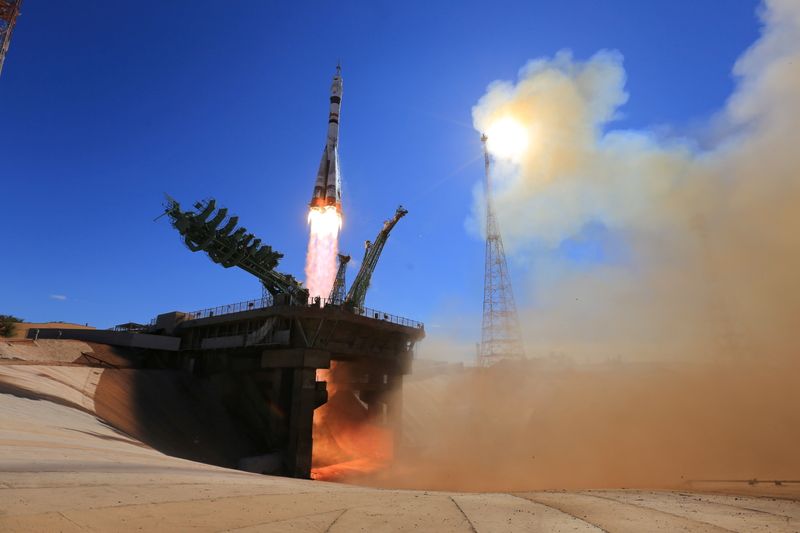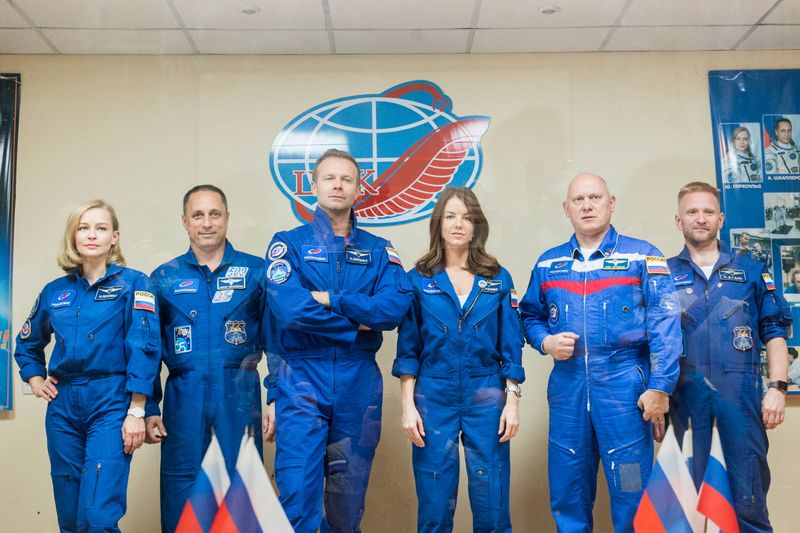MOSCOW (Reuters) -A Russian actress and a film director blasted off for the International Space Station on Tuesday, beating Tom Cruise in the race to shoot the first movie in space.
The Soyuz MS-19 spacecraft is set to dock at 1212 GMT at the station, which orbits Earth at an altitude of around 220 miles (354 km).
Russian state media provided blanket and patriotic coverage in the run-up, with a countdown clock running on Channel One and news anchors framing the development as a significant breakthrough by Russia that the rest of the world is watching closely.
The launch to film the movie "The challenge" puts Russia on course to beat the United States in the latest chapter of the space race. Actress Yulia Peresild and director Klim Shipenko will reach the cosmos ahead of Cruise, whose plans to blast off on a SpaceX rocket for an as-yet-untitled Hollywood film were announced by NASA last year.
Russia's own space industry has in recent years been dogged by delays, accidents and corruption scandals, while U.S.-based private firms backed by rich businessmen such as Elon Musk and Jeff Bezos have developed new spaceships.
Peresild and Shipenko were accompanied at the launch of their 12-day mission by two Russian cosmonauts.
Russian competition with the United States in space was a hallmark of the Cold War. Moscow launched the first satellite and put the first man and woman in space, but NASA beat it to the Moon landing. More recently, they have cooperated aboard the ISS, where cosmonauts and astronauts have lived side by side for decades.
"Space is where we became pioneers and we still maintain a confident lead despite everything," Kremlin spokesman Dmitry Peskov said after the launch.
"Yes, others are stepping on (our) toes but it is obvious that there is competition in a good sense. For our country, a flight like this, that popularises our achievements and the theme of space in general, is good news."
In the film, Peresild plays a doctor who is asked to travel to the space station to save a cosmonaut's life. Cosmonaut crew members are also set to appear.

Director Klim Shipenko, whose height of 1.9 metres (6 feet 2 inches) makes the flight in a small capsule especially challenging, has already said he is looking forward to a Mars-based sequel.
The rocket was launched from the Baikonur cosmodrome which Russia leases on the steppes of Kazakhstan.
